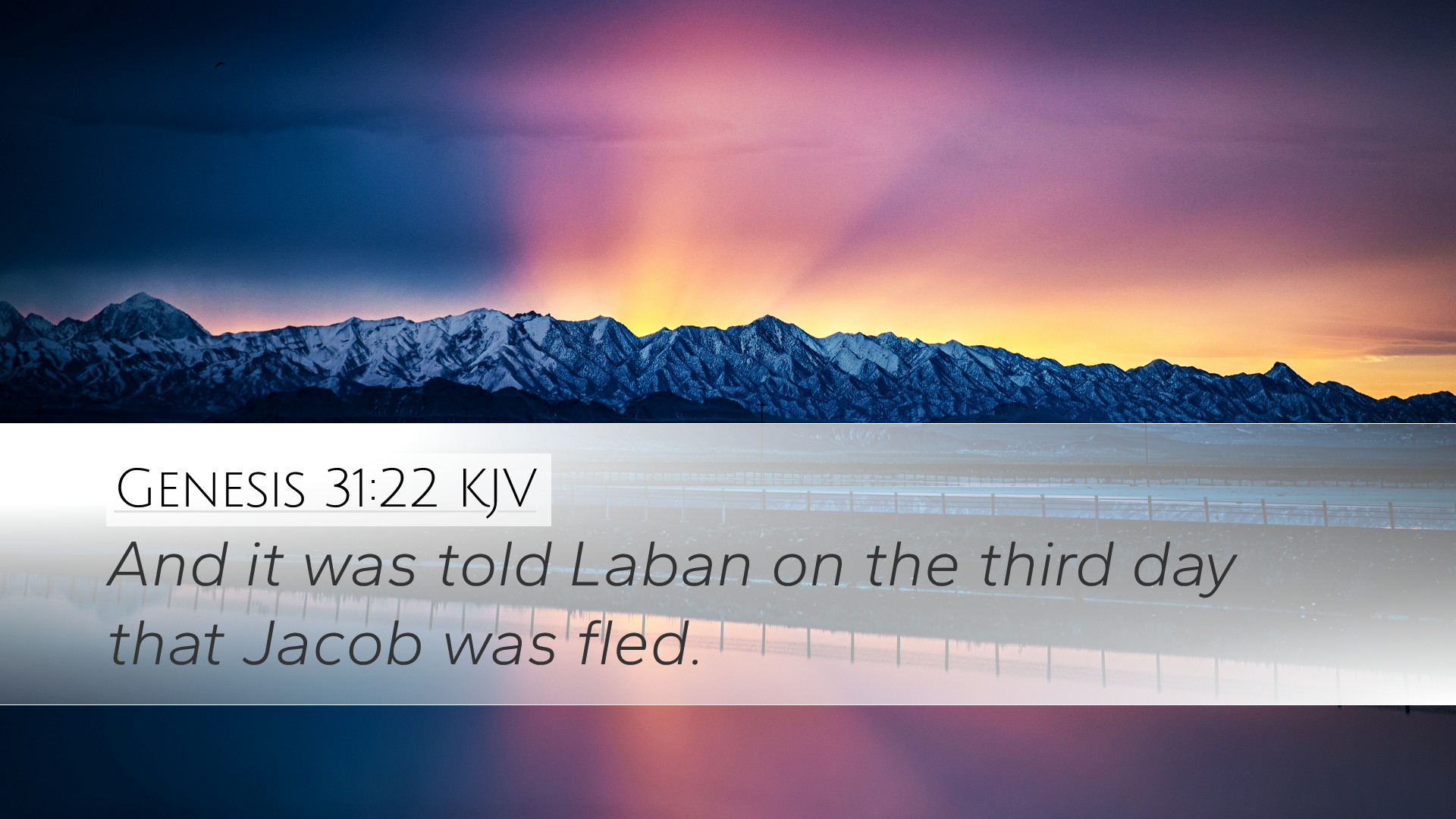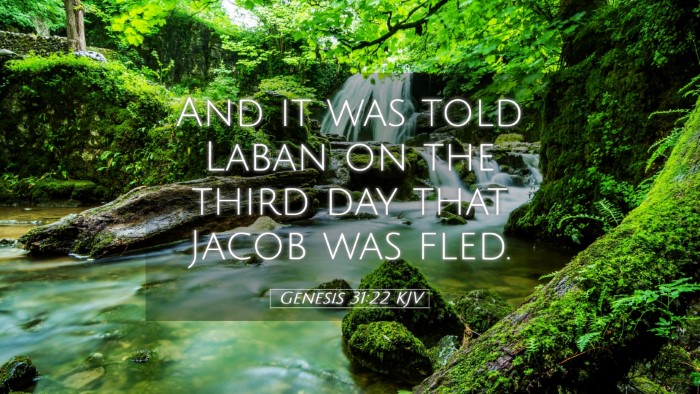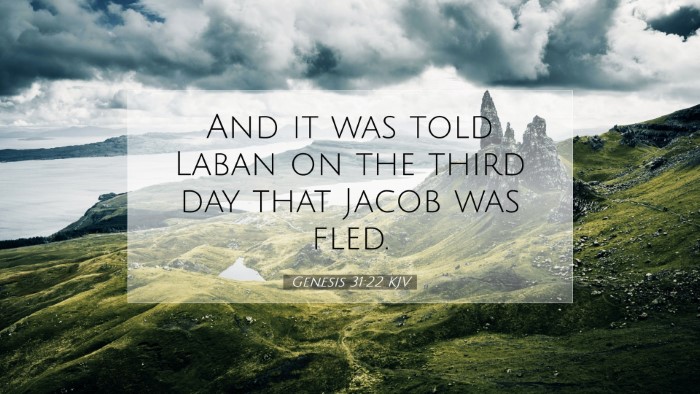Commentary on Genesis 31:22
Genesis 31:22 states: “And it was told Laban on the third day that Jacob had fled.” This verse marks a pivotal moment in the narrative of Jacob's life, showcasing themes of departure, conflict, and divine providence. The following commentary draws from multiple public domain sources to provide a holistic understanding of this crucial scripture.
Contextual Background
Historical Context: Jacob had spent many years laboring under his uncle Laban, and tensions had been rising as Jacob prospered while Laban's flocks diminished. This verse highlights the timing of Jacob's departure, occurring three days before Laban was informed—indicative of the secrecy and urgency surrounding Jacob’s actions.
Cultural Context: The act of fleeing was a culturally significant decision, indicating a break from relational ties and responsibilities. Jacob’s choice to leave without farewell not only reflected personal grievances but also spoke to the broader dynamics of family loyalty and the pursuit of divine promise.
Theological Insights
Several theological themes emerge from Genesis 31:22 that are essential for understanding the narrative:
- Divine Providence: Jacob's flight signifies God's hand guiding him away from Laban’s influence, fulfilling God's promise of land and descendants.
- Conflict and Resolution: The understanding of conflict in relationships is highlighted here. Jacob’s decision to leave without overt confrontation with Laban speaks to a deeper issue of unrepentant sin and the need for separation.
- Identity and Transformation: This moment signifies a turning point for Jacob, transitioning him from a life of deception to one that will ultimately seek reconciliation and fulfill God’s promises.
Commentaries by Notable Scholars
Matthew Henry
Matthew Henry’s Commentary emphasizes the providential timing of events. He notes that the three days taken by Laban to discover Jacob's departure symbolize God's control over the situation. Henry reflects on how this timeframe also demonstrates God’s protection over Jacob, allowing him to escape Laban’s grasp. He highlights Laban’s anger and the potential for vengeance, underlining the significance of God’s deliverance in Jacob's journey.
Albert Barnes
Albert Barnes’ Notes on the Bible expand the discussion by noting the psychological aspect of the flight. He points to Jacob’s fears regarding Laban’s reaction and the implications of fleeing. Barnes discusses the implications of Jacob’s choice, asserting that while it may seem like an act of cowardice, it is a necessary step for Jacob to fulfill his God-given destiny. He also comments on how this event catalyzes the complex relationship between Jacob and Laban, setting the stage for significant future encounters.
Adam Clarke
Adam Clarke’s Commentary offers a detailed analysis of the socio-relational dynamics between Jacob and Laban. Clarke accentuates Laban's wealth as intertwined with Jacob's labor and suggests that Jacob's decision to flee reflects a desire for autonomy and a return to the land promised by God. He provides an in-depth look at the ethical implications of Jacob’s departure, discussing issues of duty and familial obligation versus the pursuit of divine calling.
Literary Structure
The narrative of Genesis 31 is marked by a clear progression of tension culminating in Jacob's flight. Verse 22 serves as the turning point, and its placement reflects a shift not only in Jacob’s personal journey but also in the unfolding plan of God for His people. The use of timing—three days—is significant, encapsulating the themes of urgency and the inevitability of the consequences of human actions.
Application for Today’s Believer
This verse prompts several reflective questions for modern believers:
- What does it mean to flee from unhealthy relationships? Just as Jacob sought freedom from Laban’s control, believers are called to discern when to separate from relationships that hinder spiritual growth.
- How can we trust God’s providence in times of conflict? Jacob’s flight illustrates the necessity of faith in God’s plans, even when circumstances appear daunting.
- What can we learn about facing the consequences of our decisions? Acknowledging the complexities of relationships, this narrative challenges believers to act righteously, understanding that choices have lasting implications.
Conclusion
Genesis 31:22 captures a vital moment of transition for Jacob, filled with theological importance, relational complexities, and the overarching narrative of God’s enduring faithfulness. By examining this verse through various commentaries, we gain insights that not only enrich our understanding of the scripture but also offer practical wisdom for navigating our own journeys of faith.


